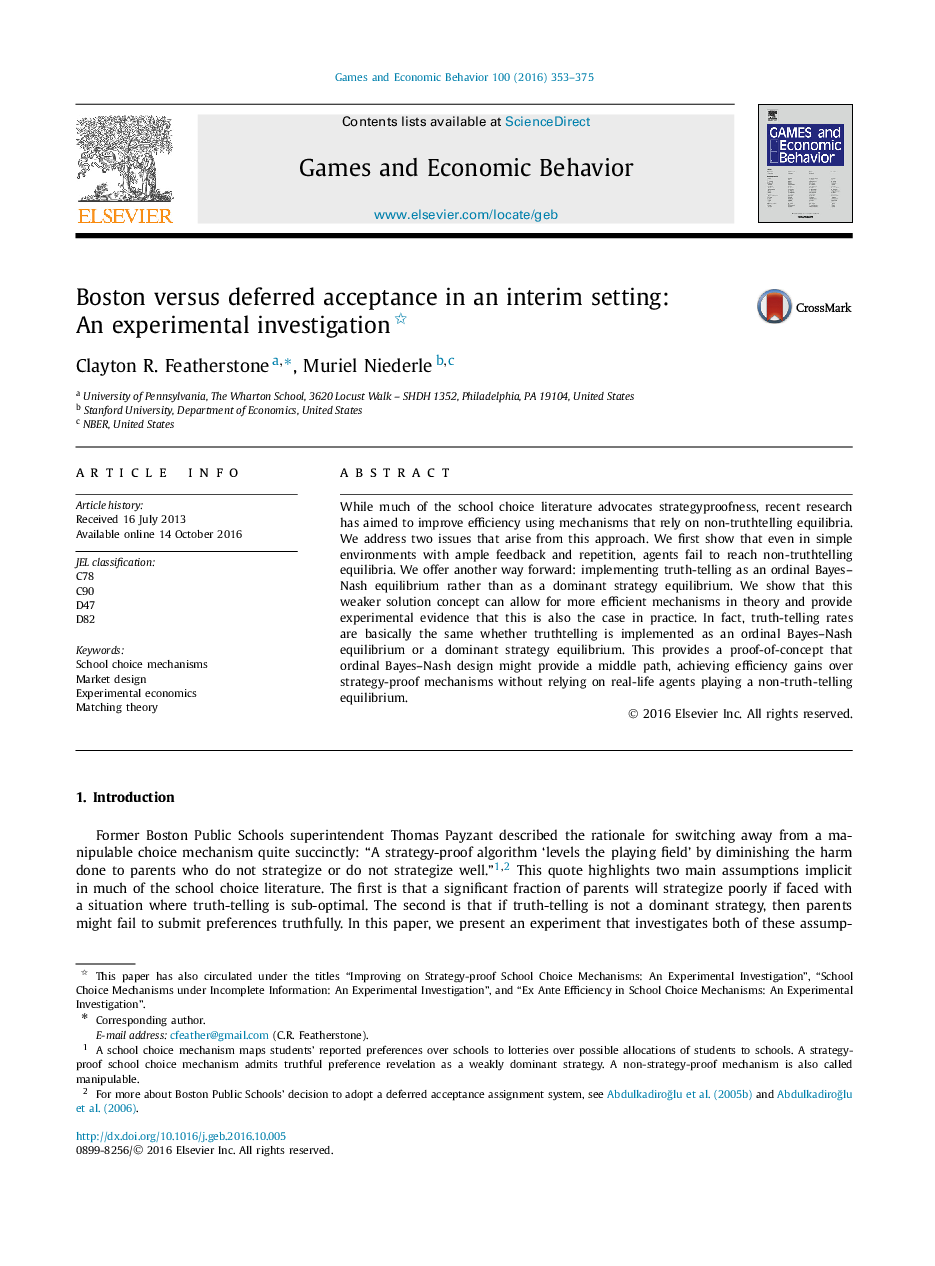| Article ID | Journal | Published Year | Pages | File Type |
|---|---|---|---|---|
| 5071459 | Games and Economic Behavior | 2016 | 23 Pages |
Abstract
While much of the school choice literature advocates strategyproofness, recent research has aimed to improve efficiency using mechanisms that rely on non-truthtelling equilibria. We address two issues that arise from this approach. We first show that even in simple environments with ample feedback and repetition, agents fail to reach non-truthtelling equilibria. We offer another way forward: implementing truth-telling as an ordinal Bayes-Nash equilibrium rather than as a dominant strategy equilibrium. We show that this weaker solution concept can allow for more efficient mechanisms in theory and provide experimental evidence that this is also the case in practice. In fact, truth-telling rates are basically the same whether truthtelling is implemented as an ordinal Bayes-Nash equilibrium or a dominant strategy equilibrium. This provides a proof-of-concept that ordinal Bayes-Nash design might provide a middle path, achieving efficiency gains over strategy-proof mechanisms without relying on real-life agents playing a non-truth-telling equilibrium.
Related Topics
Social Sciences and Humanities
Economics, Econometrics and Finance
Economics and Econometrics
Authors
Clayton R. Featherstone, Muriel Niederle,
